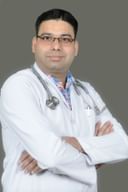Symptoms Of Gastrointestinal Problems!
Gastrointestinal Disorders Symptoms -
a. Dysphagia: It means difficulty in swallowing. Dysphagia is due to problems in the brain or food pipe. The causes of dysphagia are a stroke, oesophagal web or stricture, oesophagal growth or cancer, motility problems such as Achalasia cardia. Each disorder requires a highly specific diagnosis and treatment. It may vary from stricture dilatation by rigid dilators or balloon dilatation for achalasia cardia. Peroral endoscopic myotomy, POEM is a new endoscopic modality for the treatment of achalasia cardia. High-resolution manometry HRM is required for the diagnosis of motility disorders.
b. Vomiting: vomiting occurs due to reverse peristalsis of gastric contents and are then thrown out from the mouth. It can be due to eating too much or very acidic foods. Gastric outlet obstruction such as gastric or duodenal cancer can cause vomiting. Small intestinal obstruction can also cause vomiting. The gastroenterologist will evaluate the cause and provide treatment. Gastroscopy is required to look inside the stomach to find the cause.
c. Loose motions: Passage of excessive motions/potty is known as loose motions also known medically as acute diarrhea. When associated with vomiting it is called acute gastroenteritis. It is usually due to infections due to consumption of contaminated food or water. It is self-limiting but patients with severe dehydration or low blood pressure and persistent vomiting require admission for IV rehydration and antibiotics. When the duration of diarrhea gets prolonged by more than 6 to 8 weeks it is called chronic diarrhea. Chronic diarrhea has multiple causes including IBD, Malabsorption such as Celiac disease or pancreatic insufficiency. The gastroenterologist will evaluate the patients individually to find the cause. Gastroscopy (examination of upper GI tract) and Colonoscopy (examination of the lower GI tract) is required in addition to blood tests and CT scan abdomen.
d. Weight loss: Weight loss can occur due to multiple reasons and requires a thorough evaluation for the same. Common causes include cancer of food pipe, stomach cancer, large intestine cancer, liver cancer, pancreas cancer, gall bladder cancer. GI evaluation includes Gastroscopy and colonoscopy and CT scan abdomen and chest. Tumour markers such as CA19-9, CEA, AFP help in the diagnosis of cancer.
e. Anemia: When the haemoglobin decreases it is known as anemia. In females, it can be due to poor nutritional intake of iron or excessive bleeding through periods. But in males it is presumed to be due to GI loss and the gastroenterologist would evaluate the cause of anemia by Gastroscopy and colonoscopy. If both investigations are normal capsule endoscopy is required. Capsule endoscopy is a small camera which is swallowed by the patient and thousands of images of the small intestine are taken, which are then read on a computer by a gastroenterologist to find the cause of bleeding. Deworming is usually done if iron deficiency anemia is suspected. Bone marrow is required if no GI cause is found.
f. Abdominal pain: Abdominal pain can occur due to multiple reasons. Pain is evaluated by a gastroenterologist and requires quick and accurate evaluation. Severe sudden onset pain requires hospitalisation. The usual causes include acute cholecystitis (Inflammation of gall bladder), acute pancreatitis (inflamYellowing of eyes or urine is a common problem. When the total bilirubin increases it is called jaundice and has many causes. Jaundice can be due to destruction of blood (Hemolytic jaundice) or due to liver disease as in acute hepatitis or chronic hepatitis.Usual causes are Hepatotrophic viruses such as Hepatitis A, Hepatitis B, Hepatitis C, Hepatitis D, and Hepatitis E. Alcohol and drugs such as antibiotics can also cause jaundice. The gastroenterologist will evaluate the cause in detail and provide treatment according to the cause.mation of the pancreas), acute hepatitis (inflammation of the liver), Acute cholangitis(inflammation due to obstruction of the bile duct), Acute gastritis or esophagitis, Intestinal obstruction, Intestinal perforation. Depending on the cause the patient is treated either by medicines or surgery.
g. Gas and bloating: Bloating is the sensation of abdomen fullness and is usually due to excessive air in the intestines; however, it can be due to medical causes as well. Maldigestion due to chronic calcific pancreatitis and Malabsorption such as Crohn’s disease can cause bloating. Altered motility of small intestine seen in hypothyroidism or previous surgery can cause small bowel bacterial overgrowth. Management includes finding the exact cause of bloating and many good medicines are available for bloating which help in expulsion of gas from the GI tract fast.
h. Constipation: Constipation is a very common complaint. Unable to pass daily motion or motions once in 2 to 3 days requires evaluation for causes of constipation. In the elderly, it is usually benign and occurs due to large intestine inertia due to age. In other patients, it can be due to slow transit constipation, anorectal dyssynergia (obstructed defecation syndrome ODS) or malignancy. Colonoscopy, anorectal manometry, MRI defecography and colonic transit study is required for a complete evaluation.
I. Acidity: Burning sensation in the upper abdomen and central part of the chest is a very common complaint and is described by patients as Acidity. Medically it is called Gastroesophageal reflux disease (GERD) where the contents of the stomach mainly hydrochloric acid and bile regurge up and cause erosions of the food pipe Lifestyle modification such as weight reduction, stopping alcohol and smoking, head elevation while sleeping, avoiding high-fat diet and spicy and fried foods are usually recommended along with medicines.. Diagnosis is mainly by Upper GI endoscopy, 24-hour PhMetry, and High-resolution manometry. Treatment involves the prescription of acid inhibitors and prokinetics. For patients who do not get adequate relief with the medicines, surgery is recommended, which includes Nissen Laparoscopic fundoplication. Many endoscopic surgeries are also available such as GERDX and ARMS.
J. Jaundice: Yellowing of eyes or urine is a common problem. When the total bilirubin increases it is called jaundice and has many causes. Jaundice can be due to destruction of blood (Hemolytic jaundice) or due to liver disease as in acute hepatitis or chronic hepatitis. Usual causes are Hepatotrophic viruses such as Hepatitis A, Hepatitis B, Hepatitis C, Hepatitis D, and Hepatitis E. Alcohol and drugs such as antibiotics can also cause jaundice. The gastroenterologist will evaluate the cause in detail and provide treatment according to the cause.



+1.svg)
